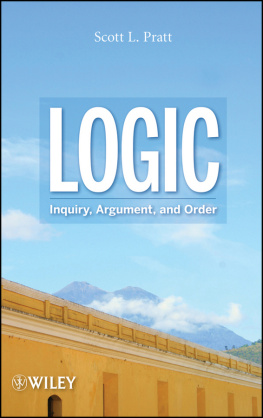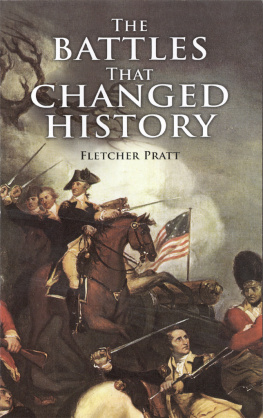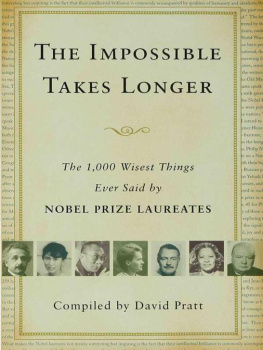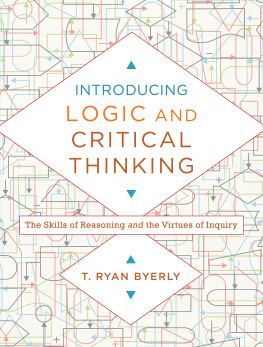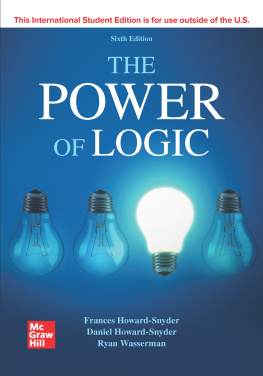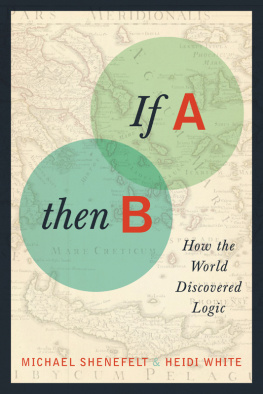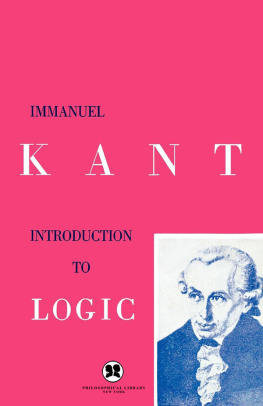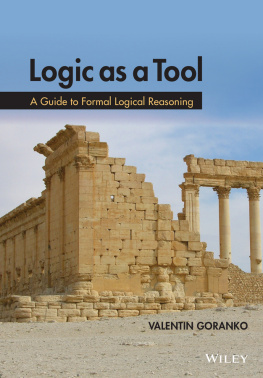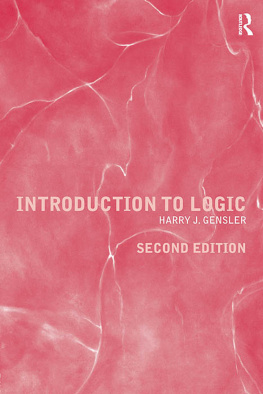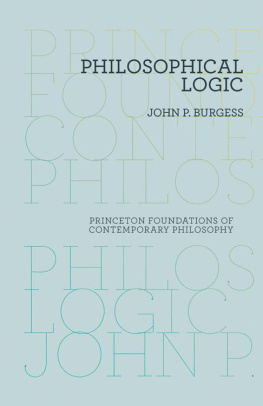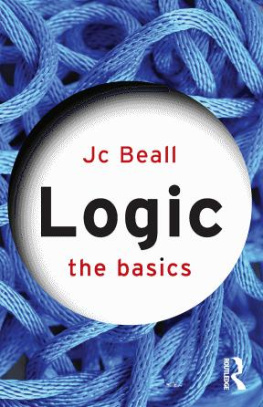

Copyright 2010 by John Wiley & Sons, Inc. All rights reserved.
Published by John Wiley & Sons, Inc., Hoboken, New Jersey.
Published simultaneously in Canada.
No part of this publication may be reproduced, stored in a retrieval system, or transmitted in any form or by any means, electronic, mechanical, photocopying, recording, scanning, or otherwise, except as permitted under Section 107 or 108 of the 1976 United States Copyright Act, without either the prior written permission of the Publisher, or authorization through payment of the appropriate per-copy fee to the Copyright Clearance Center, Inc., 222 Rosewood Drive, Danvers, MA 01923, (978) 750-8400, fax (978) 750-4470, or on the web at www.copyright.com . Request to the Publisher for permission should be addressed to the Permissions Department, John Wiley & Sons, Inc., 111 River Street, Hoboken, NJ 07030, (201) 748-6011, fax (201) 748-6008, or online at http://www.wiley.com/go/permission .
Limit of Liability/Disclaimer of Warranty: While the publisher and author have used their best efforts in preparing this book, they make no representations or warranties with respect to the accuracy or completeness of the contents of this book and specifically disclaim any implied warranties of merchantability or fitness for a particular purpose. No warranty may be created or extended by sales representatives or written sales materials. The advice and strategies contained herein may not be suitable for your situation. You should consult with a professional where appropriate. Neither the publisher nor author shall be liable for any loss of profit or any other commercial damages, including but not limited to special, incidental, consequential, or other damages.
For general information on out other products and services or for technical support, please contact our Customer Care Department within the United States at (800) 762-2974, outside the United States at (317) 572-3993 or fax (317) 572-4002.
Wiley also publishes its books in a variety of electronic formats. Some content that appears in print may not be available in electronic formats. For more information about Wily products, visit our web site at www.wiley.com .
Library of Congress Cataloging-in-Publication Data:
Pratt, Scott L.
Logic : inquiry, argument, and order / Scott L. Pratt.
p. cm.
Includes bibliographical references and index.
ISBN 978-0-470-37376-7 (cloth)
1. Logic. I. Title.
BC71.P67 2009
160dc22
2009004195
For Alexander and Aaron
ACKNOWLEDGMENTS
I would like to thank J. Brent Crouch, whose commitment to the study of the logic of Josiah Royce led to the beginning of this project; John Kaag, who served as my research assistant in the early stages; Jos Mendoza, who spent untold hours as my research assistant in the last stages of this project; and Aaron Pratt, who read and commented on the manuscript. I would also like to thank my colleagues John Lysaker, Mark Johnson, Erin McKenna, and Douglas Anderson, who asked key questions at crucial moments and provided ongoing encouragement. I would also like to thank the students who took Philosophy 325 at the University of Oregon and worked with successive stages of this book, providing invaluable feedback in the context of class discussion and outside class through helpful suggestions and questions that led to better presentations of the material. Finally, I would like to thank Scott Coltrane, Dean of the College of Arts and Sciences, who provided the research support necessary to complete this work.
The author and publishers gratefully acknowledge the following for permission to reprint copyright material:
The Collected Papers of Charles Sanders Peirce, Volumes I, II, III, VI. Edited by Charles Hartshorne and Paul Weiss. Cambridge MA.: The Belknap Press of Harvard University, Copyright 1931, 1932, 1933, 1934, 1959 by the President and Fellows of Harvard College.
Eduardo Mendieta, The Making of New Peoples: Hispanizing Race. In Hispanics/Latinos in the United States: Ethnicity, Race, and Rights, edited by Jorge J. E. Gracia and Pablo De Greiff. New York: Routledge, Copyright 2000 by Taylor Francis Group, LLC.
The Collected Works of John Dewey. Later Works, Volume 8, copyright 2008 by the Board of Trustees, Southern Illinois University. Volume 12, Copyright 2008 by the Board of Trustees, Southern Illinois University.
Henry S. Sharp, Asymmetric Equals: Women and Men about the Chipewyan. In Women and Power in Native North America, edited by Klein and Ackerman. Norman, OK.: University of Oklahoma Press, Copyright 1995.
Jrgen Habermas, Actions, Speech Act, Linguistically Mediated Interactions, and the Lifeworld. In On the Pragmatics of Communication, edited by Maeve Cooke. Cambridge, MA.: MIT Press, Copyright 1998.
W. V. Quine, Two Dogmas of Empiricism (excerpts), in The Philosophical Review, Volume 69, 2043, Copyright 1951, Sage School of Philosophy at Cornell University. All rights reserved. Used by Permission of the present publisher, Duke University Press.
William Ockham, Epistemological Problems (excerpts), in Medieval Philosophy: Selected Readings from Augustine to Buridan, edited and introduced by Herman Shapiro, New York: Modern Library, 1964. Used by permission of the copyright holder, Hackett Publishing Company.
Rudolf Carnap, The Elimination of Metaphysics Through the Logical Analysis of Language, from Logical Positivism, edited by A. J. Ayer. Copyright 1959 by The Free Press. Reprinted with permission of The Free Press, a Division of Simon & Schuster, Inc. All rights reserved.
The author and publishers apologize for any errors or omissions in the above list, and would be grateful to be notied of any corrections that should be incorporated in the next edition or reprint of this book.
CHAPTER 1
THE SIGNIFICANCE OF LOGIC
Franz Fanon, in The Wretched of the Earth, identifies logic as the source of violence and oppression because it provides a framework for the division of the world into the colonizers or settlers and the colonized or natives. The colonial world, he says, is a world cut in two. The dividing line, the frontiers are shown by barracks and police stations (Fanon, 1963, 38). Speaking of the experience of the former French colonies of Northern Africa, Fanon says The zone where the native lives is not complementary to the zone inhabited by the settlers. The two zones are opposed, but not in the service of a higher unity (Fanon, 1963, 38). Instead, the division between zones is sharp and affords no place to stand. Obedient to the rules of pure Aristotelian logic, he says, both [zones] follow the principle of reciprocal exclusivity (Fanon, 1963, 389). The division is not a division of equals, however. The exclusivitysettlers in one zone and natives in anotherprovides a framework for good and evil. While the settler zone reaps the benefits of the labor and land of the natives, the native zone is a place of ill fame, peopled by men of evil repute. They are born there, it matters little where or how, and they die there, it matters not where or how (Fanon, 1963, 39). Once the world is divided, good, white, rich settlers reign over the evil, dark, poor. The reason for this state of affairs, according to Fanon, is neither the superiority of one group nor the result of some preexisting natural law, but rather a product of the logic of separation itself.
Next page
